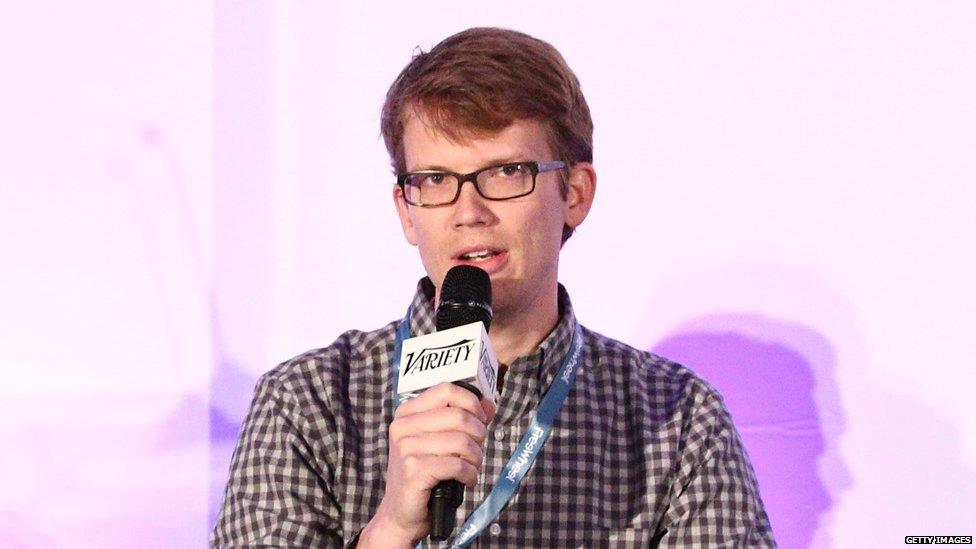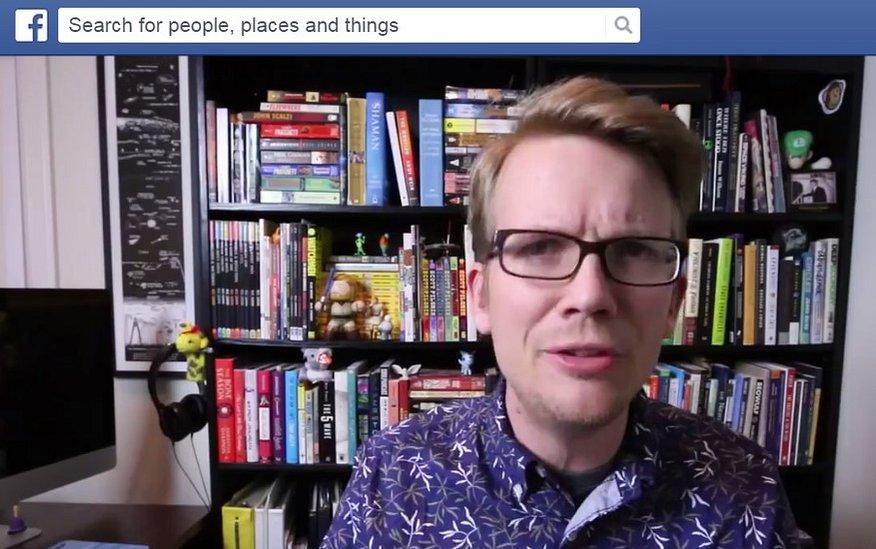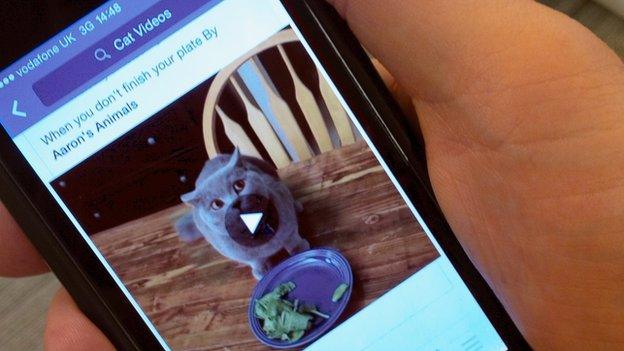Facebook in video 'views' row
- Published

Hank Green is a popular YouTube star
Facebook has defended the way it handles video content after it was criticised by a popular YouTube star.
Video blogger Hank Green said the company intentionally overstated how many people watched videos on the site, and failed to tackle video piracy.
Facebook said it took intellectual property rights "very seriously".
One expert told the BBC the social network needed to do more to "reassure" content creators.
Four billion 'views'?
Hank Green is one of YouTube's most prominent stars and more than 2.6 million people follow the YouTube channel he runs with his brother John.
In a post on his blog, external, Mr Green said although Facebook was an "interesting" platform for video, the company had "fundamentally devalued" online video by inflating statistics.
In April, Facebook said its visitors clocked up four billion video views daily.
Mr Green said Facebook's statistics were a "lie", because the site counted a video as viewed after just three seconds.
"Facebook counts views significantly before people could be said to be watching the video. By 30 seconds, when viewership actually could be claimed, only 20% are watching," he said.
Mr Green also accused the social network of making money from content which had been stolen from other websites.
In June, research by advertising agency Ogilvy found that 73% of the most popular videos on Facebook had been ripped from other websites, accounting for 17 billion views.
Mr Green said it was "inexcusable" that Facebook had not developed an efficient system to spot when videos had been ripped and re-uploaded, a process known as freebooting.
Facebook replied to Mr Green, external by commenting on his blog.

Mr Green said Facebook's "lack of searchability" made it hard to find freebooted videos
The company said it wanted to "create a sustainable video ecosystem that works well for everyone".
The firm's product manager Matt Pakes said Facebook counted video views after three seconds because it showed a person's "intent to watch".
He said the site had systems in place to detect stolen content and content owners could "report" freebooting.

Facebook said users could "report" stolen content
"We're actively exploring further solutions," said Mr Pakes. "This is a significant technical challenge at our scale, but we have a team working on it and expect to have more to share later this summer."
Weaker definition
"There isn't an agreed standard on video views," said Joseph Evans, digital media analyst at Enders, "But three seconds of an auto-playing video is a weaker definition of a view."
"Hopefully it can iron out these problems as it becomes bigger."
"Facebook can't afford to get it wrong. It's hard to see a video platform surviving if it's seen as a haven for pirated content and blacklisted."
"If content creators and broadcasters shun it as a platform, it will hurt Facebook in the long term," he said.
Facebook told the BBC: "As video continues to grow on Facebook, we're actively exploring further solutions to help IP owners identify and manage potential infringing content."
- Published2 July 2015
